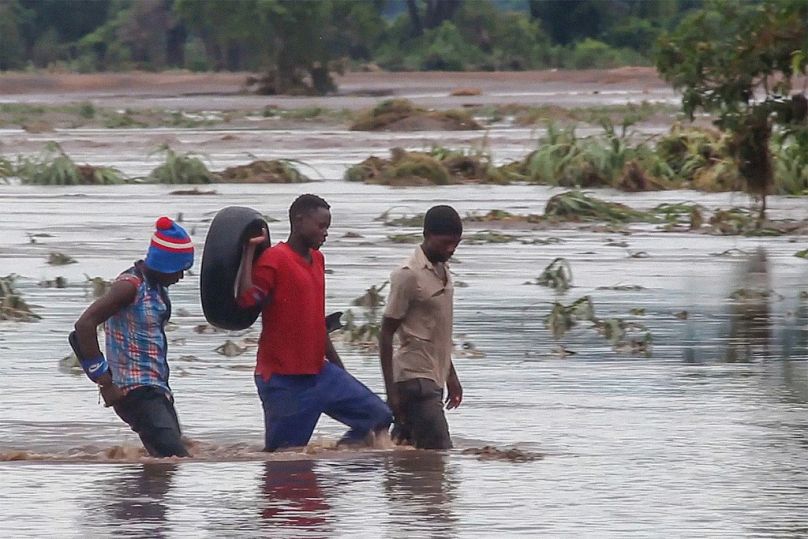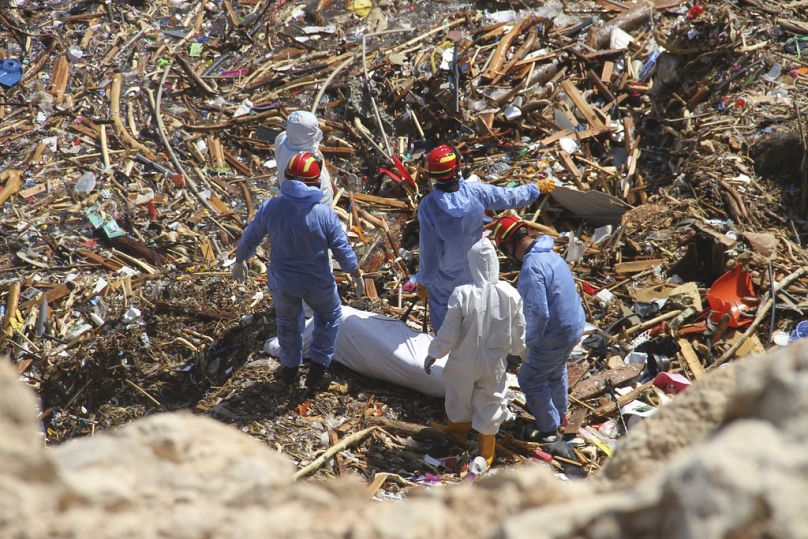If we as a global society are committed to climate justice, it is vital that we address the chief injustice of Global South communities experiencing the devastating impacts of a crisis they did not cause, Heather McGray writes.
Loss and damage, a phrase which once upon a time was relegated to fringe events of major climate gatherings around the world, was last week sitting at the top of the agenda for the UN's Climate Ambition Summit in New York — a major event within the UN General Assembly (UNGA).
Rightly so. Loss and damage refers to the negative impacts of climate breakdown on humans, societies and the natural environment.
It is countries in the Global South for whom loss and damage is most significant.
Alongside untold levels of destruction to land, property and infrastructure — all of which have significant economic implications — these countries are put at a distinct disadvantage in terms of adaptation and mitigation efforts thanks to a complex series of financial challenges, including unsustainable debt, spiralling inflation and currency fluctuations.
The situation is exacerbated by the fact that Global South countries have contributed the least to the historic emissions that have fuelled our current predicament.
Imperial College London’s Grantham Institute estimates that depending on global efforts to mitigate and adapt to the climate crisis, loss and damage costs, which go beyond adaptation, “could cost developing countries a total of $290-580 billion (€275.5-551bn) in 2030 and reach $US1-1.8 trillion (€950bn-1.7tn) in 2050.”
At COP28 this December, discussions of the Transitional Committee to operationalise a new fund for loss and damage will conclude, with every hope that finance for a raft of new initiatives can help empower communities across the Global South who are currently stuck between a rock and a hard place.
As discussions progress, addressing non-economic loss and damage will be key.
Not all losses are financially quantifiable
Non-economic loss and damage (NELD), sometimes called invaluable loss, refers to the harm caused by climate breakdown on human and natural systems that is difficult to put a price tag on.
NELD includes biodiversity loss, the loss of traditional knowledge and ways of living, and the trauma people experience when they’re forced to leave their homes or ancestral lands.
Take, for example, the devastating floods in Pakistan that took place last year. In economic terms, the floods cost the country around $40bn (€38bn) in damages.
However, the floods affected 33 million people and cost 1,600 lives. It destroyed over 2 million houses and damaged 13,000km of roads and 18,000km2 of cropland.
The impact of the displacement, the lives lost, the livelihoods destroyed, the education disrupted and the emotional toll that these events will have had on communities across Pakistan is unquantifiable in monetary terms.
The most vulnerable face the greatest challenges
Those facing the most severe non-economic loss and damage are often communities that face — or have long faced — injustices like discrimination, colonisation, or displacement from traditional lands.
Further, the most vulnerable people within these communities — often women, children, elders, or people with disabilities — face the greatest challenges.
Indeed, the most recent IPCC report mentioned for the first time the impact that loss and damage caused by the climate crisis has on mental health, outlining that those most negatively affected by climate breakdown are often the most vulnerable populations, such as Indigenous Peoples and people with disabilities.
The Climate Justice Resilience Fund (CJRF) works specifically with these marginalised groups, including women, youth and Indigenous Peoples, helping them create, share, and scale their own solutions for climate resilience.
Global South leaders must follow Scotland’s example
Just before the UN Climate Ambition Summit launched last week, the Scottish government announced it would renew its partnership with us at CJRF to program £5 million (€5.8m) in grants, technical assistance and advocacy, to address non-economic loss and damage for marginalised groups within communities across countries in the Global South who, like Pakistan, have been subjected to the devastating impacts of the climate crisis.
Funding from the Scottish Government will enable CJRF to continue its participatory approach to supporting activities to address loss and damage.
We’ll partner with organisations that have close connections to the communities across the Global South that they support.
Interventions will be community-led to ensure that the communities and individuals themselves are assessing their loss and damage and are empowered to identify how they want to address it.
The work that Scotland’s funding enables CJRF to do will help build a body of practical learnings.
These will be essential to the new L&D Fund, and to the global community as a whole, as we work together to address all forms of loss and damage affecting communities in the Global South.
We have to recognise all the impacts of climate breakdown
In a keynote speech at New York Climate Week, Scotland’s First Minister Humza Yousaf stated that no community on Earth will be left untouched by the effects of the climate crisis, but that suffering will not be equally divided.
We urge leaders of developed nations to recognise all the impacts that climate breakdown is having on communities around the world — both economic and invaluable.
As COP28 approaches, leaders in the Global North must do all they can to stand up the Loss and Damage Fund, and to establish funding arrangements that enable communities to effectively address L&D, including NELD.
If we as a global society are committed to climate justice, it is vital that we address the chief injustice of Global South communities experiencing the devastating impacts of a crisis they did not cause.
Heather McGray serves as Director of the Climate Justice Resilience Fund, a grantmaking initiative supporting women, youth, and Indigenous Peoples in places severely impacted by climate change.
At Euronews, we believe all views matter. Contact us at view@euronews.com to send pitches or submissions and be part of the conversation.














